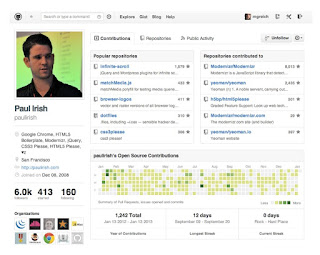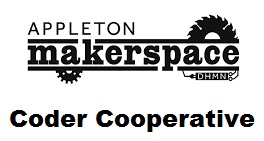Education is one of the areas where GitHub is making a significant impact. So in order to be familiar with and become more skilled at using GitHub, students and teachers should consider becoming civic hackers!
I’m not a coder, I'm not a teacher, and I don’t have a CS / IT degree (computer science / information technology). But it seems to me that every student interested in technology or STEAM topics (science, technology, engineering, arts, math) should be introduced to GitHub by their teachers. As it says on GitHub's website, the service provides "powerful collaboration, code review, and code management for open source and private projects."
If students who are serious coders want to use GitLab, Bitbucket or another repository for most of their code repository needs, that’s fine too, but they should at least be familiar with GitHub because it’s somewhat of a defacto standard.
In the post “Embracing Participatory Culture in Education,” Alexey Zagalsky talks about what his university research showed regarding how and why educators use GitHub. I haven’t discussed the use GitHub with teachers and don’t personally use it enough to be able to knowledgeably evaluate Alexey’s research findings. However, I do use it enough that I strongly recommend every STEAM teacher and student take the time to use GitHub and learn enough about it to be able to understand whether it has value for them.
Seriously trialing GitHub to see if it has value for you falls in the same category as making informed decisions about whether to use other 21st century digital services like Google Docs, Dropbox, Slack, Trello, Skype, and a growing list of other tools to manage and enhance our work and our personal lives.
A couple education benefits of GitHub are mentioned in Alexey’s post:
“...our study reveals extraordinary benefits to educators who used it. By using GitHub, educators can share and collaborate on course material. When a fellow educator wants to teach a similar course, all that she needs to do is fork the original course on GitHub. And if she improves it, other educators are aware of the changes and can integrate them back to their courses as well...Suddenly, the course grows beyond the classroom, allowing the exchange of ideas and knowledge among students and external people (e.g., practitioners and experts from the industry).
Using GitHub as a submission platform also makes it easier for educators to monitor student progress, activity, and participation. GitHub has numerous features that support transparency of student activities, e.g., graphs and the news-feed that aggregates all the activity in one place...
By using GitHub educators were able to encourage participation. In one case, the instructor used student logs as material for discussion in class. Another example was where students submitted an issue followed by a Pull-Request, mechanisms that are usually used to discuss bugs or code changes, in order to change a deadline...
GitHub can also be used as a portfolio showcasing the student’s work. It is common for employers to evaluate candidates based on their existing projects and activity on GitHub...”
 Two concepts I especially like about GitHub are (1) sharing and forking open source code / ideas and (2) the professional portfolio to showcase and store a person’s work. I’ll probably write a future post about these two aspects of GitHub because they have huge value to both individuals and to organizations.
Two concepts I especially like about GitHub are (1) sharing and forking open source code / ideas and (2) the professional portfolio to showcase and store a person’s work. I’ll probably write a future post about these two aspects of GitHub because they have huge value to both individuals and to organizations.GitHub is a strong supporter of students and the education sector, with items like the Student Developer Pack, the Classroom Guide, and Classroom For GitHub.
Now, let’s look at a few of GitHub's compelling benefits for NE Wisconsin students and teachers who are civic hackers:
- You will learn to use GitHub. The DHMN Civic Hacks webpage is a hub for most of the civic hacking in our area. Students and teachers in NE Wisconsin who work on civic hacks will likely spend time on GitHub. If you don’t already use GitHub or want to learn how to use it better, we’ll be happy to help you set up an account there, learn the basics and help you figure out answers to your GitHub questions.
- You will start developing a portfolio on GitHub. Having a portfolio makes it easy to demonstrate your past work, makes it easy for others to work with you on projects, gives you public motivation to improve your portfolio, and might help you get a job. As mentioned in “Show Your Code: Use Github to Maintain Your Code Portfolio,” “Github has been taking progressive steps to making it easier for developers to build and maintain a...code portfolio...With Github, developers can push and pull code from a central repository and also gain a visual representation of the work done on said code repository. If a contributor makes a change, it is completely transparent as to who made the change and exactly what that change was in a very clear manner. Another very cool thing that Github has made easier is contributing to another developer’s open sourced code...Github launched redesigned profile pages for developers...The idea is to provide the developer with a single area to show their development work. [In the screenshot above] we can see all of the repositories that Paul has contributed to since he became a member in 2008...Overall, it is a portfolio for Paul Irish. It’s showing a historical representation of his development work. If you’d like to dig deeper and actually look at the code he’s committed, that is all just a click away.” For more reading on this topic, look at “GitHub Is Your Resume Now,” “Why GitHub is not your CV” and a Google+ post from Gina Trapani.
- Your GitHub account makes it easy to work on projects and to start new projects. You won’t have to try to find where your current code base files are or try to manually manage your code versioning.
- You can use GitHub for projects other than coding. As mentioned in Alexey’s post, “...Early adopters use GitHub to compose music, to share recipes, and even for legal documents. For example, Stefan Wehrmeyer, a German software developer and activist has posted the German federal government’s laws and regulations to GitHub. Allowing anyone to track changes, see who made the changes, and why...Similarly, the US federal code and the French civil code have been published to GitHub as well...”

Heavy users of GitHub will be able to tell you many more benefits of using GitHub. And some of the civic hackers you’ll meet are GitHub power users. And if you want to talk or collaborate with a fellow student or a fellow teacher, Google can help you find plenty of peer GitHub users.
For more relevant background on GitHub, read my earlier post “GitHub and Civic Hacking.”
You won’t regret checking out the DHMN Civic Hacks GitHub page and coming to the next NE Wisconsin civic hacking meetup on October 24, 2015.
If you’re not already a GitHub user, consider setting up a free account and learning the basics. If you’re not a coder and would rather wait to get an account and have someone help you get started, we’ll be happy to do that on October 24.
Hope to see you in October!
*****








































